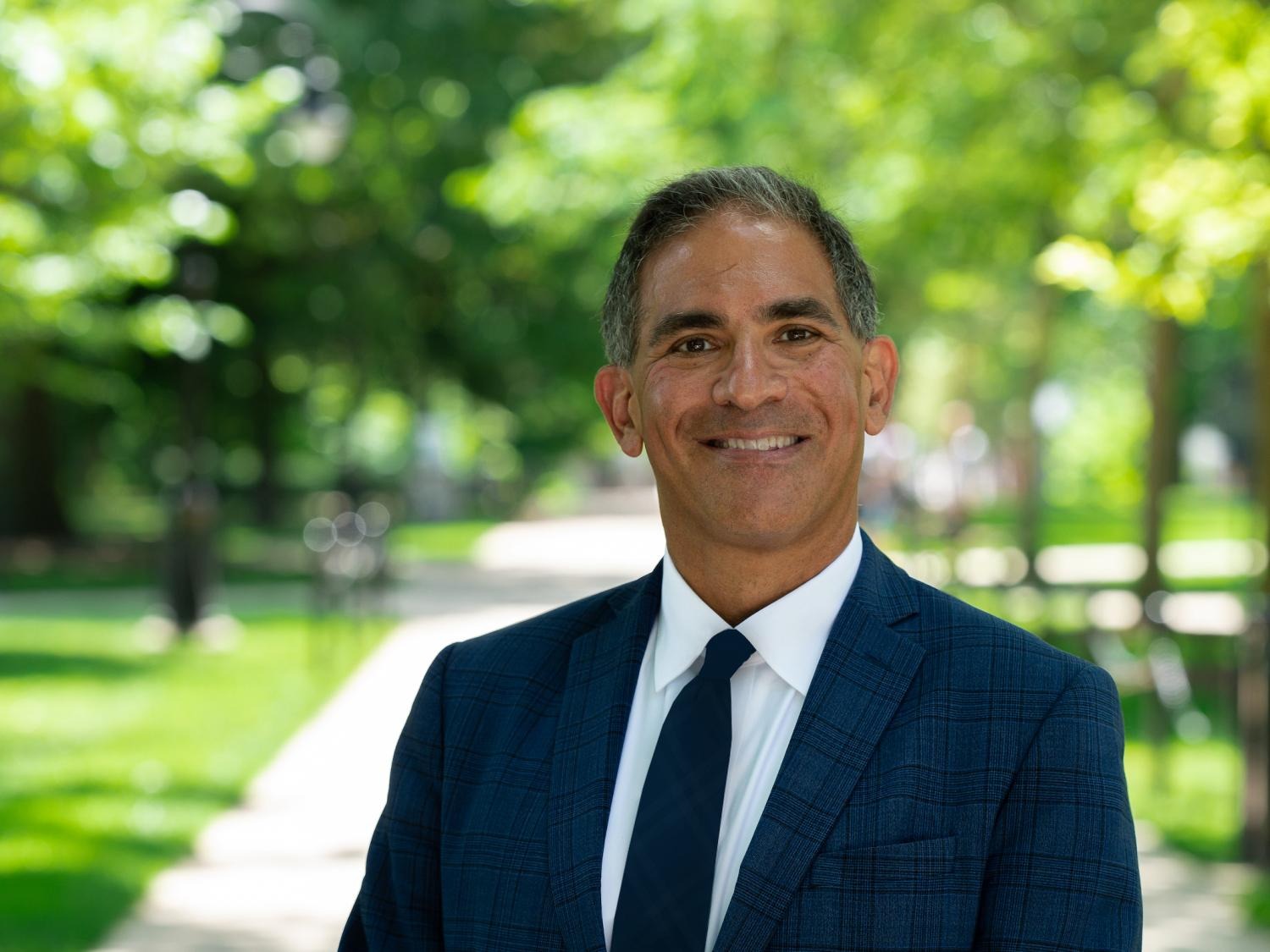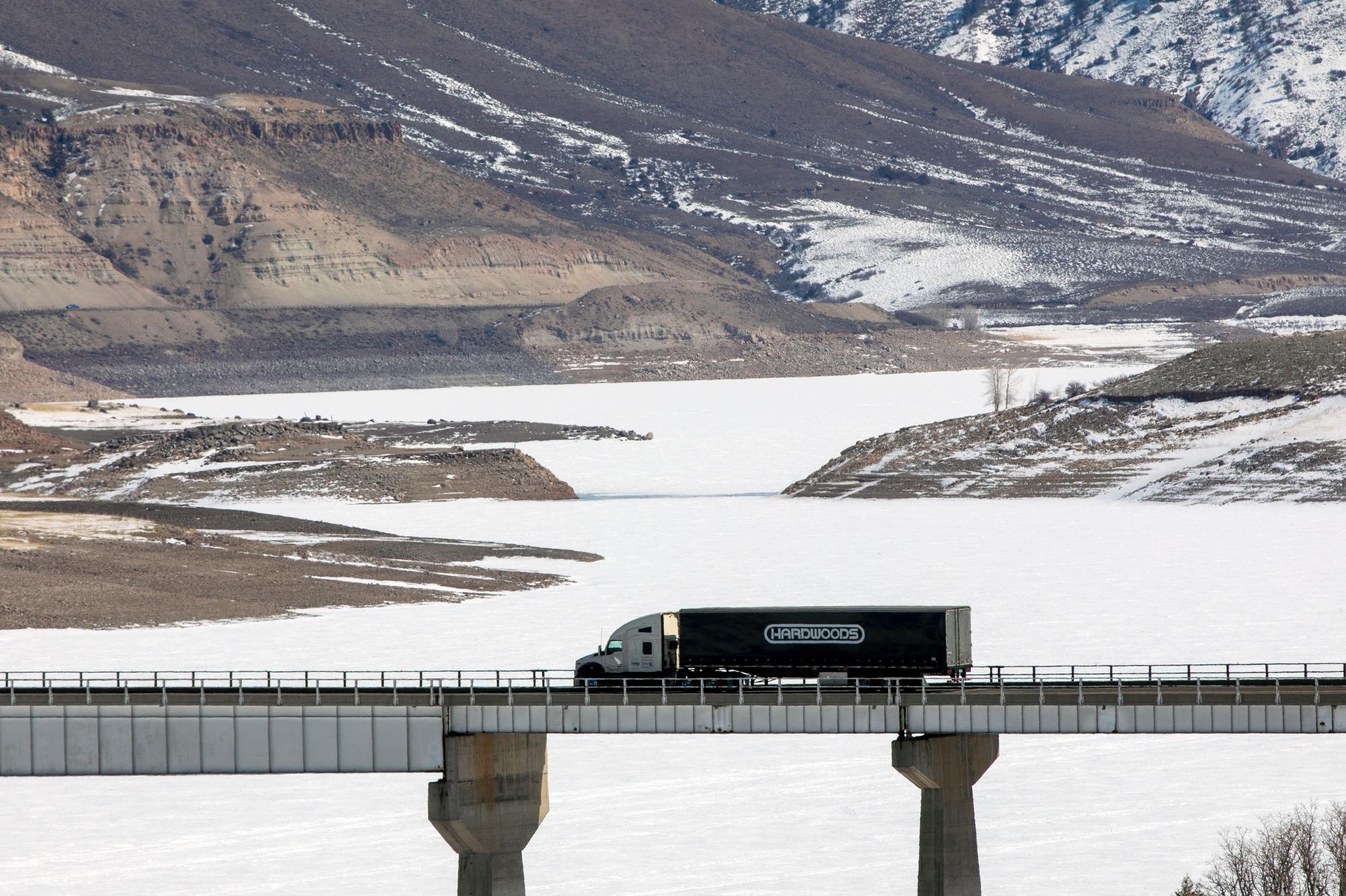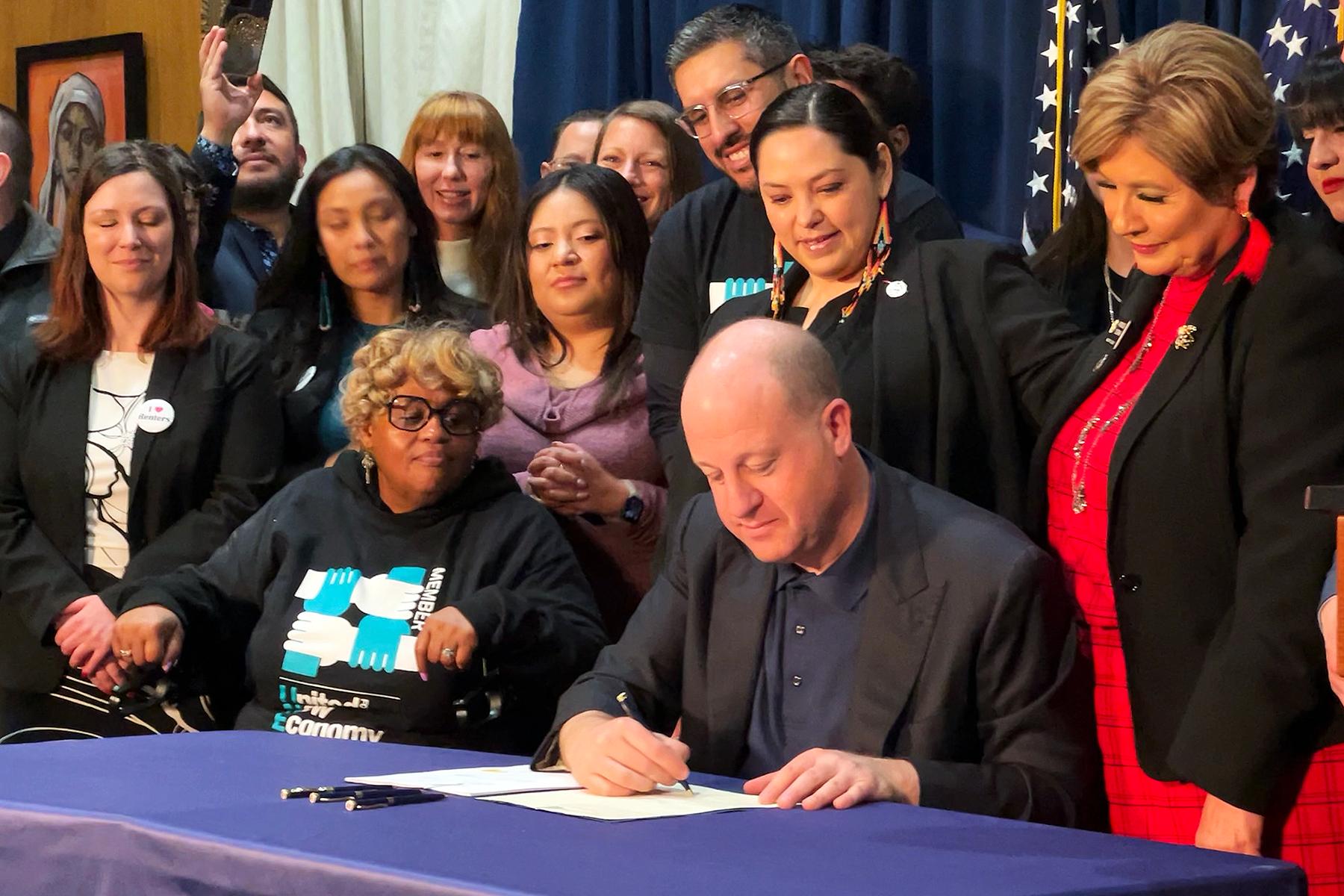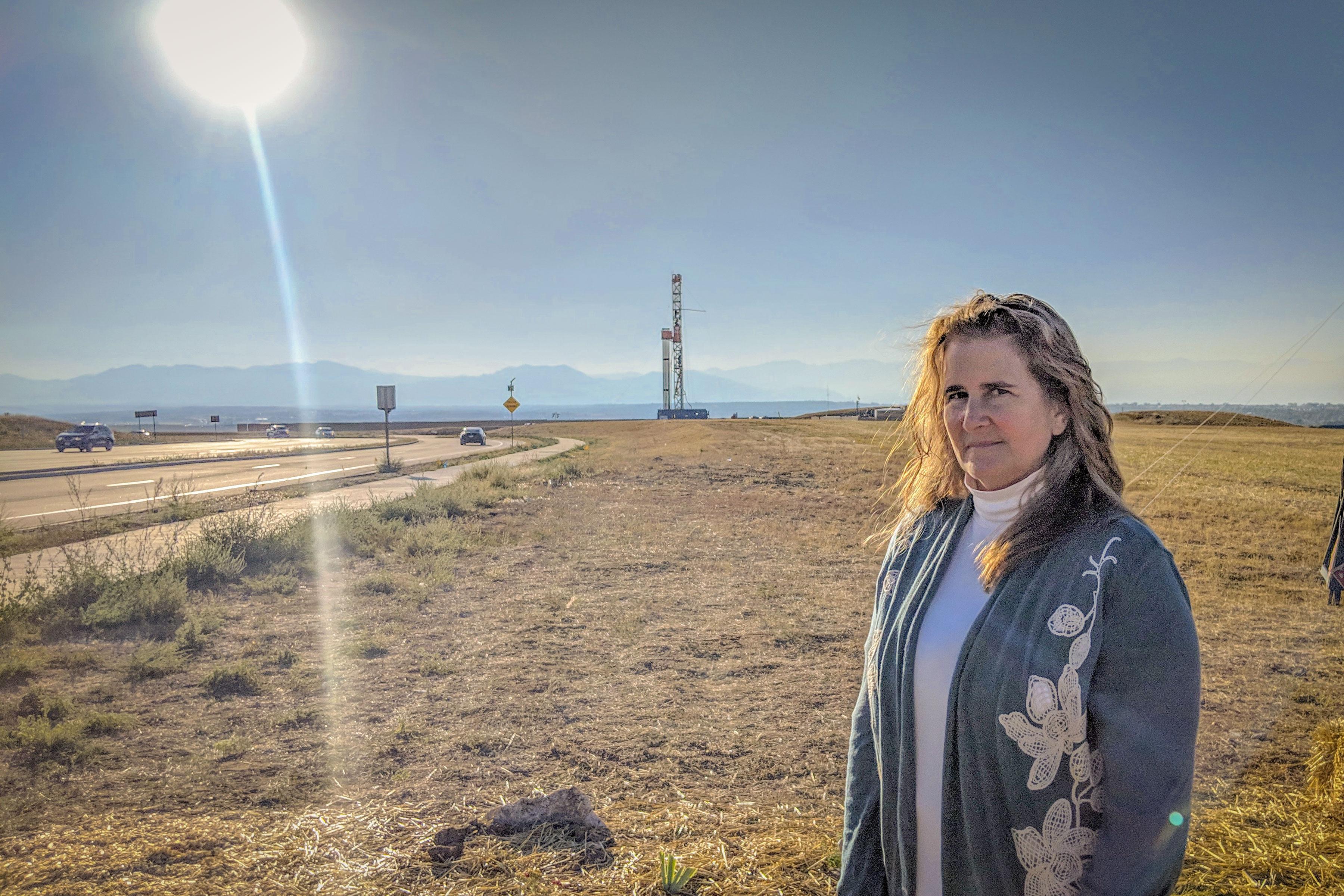
Diana Bray knows she’s a longshot candidate in the Colorado Senate race.
At a small campaign event at a park in Broomfield, the clinical psychologist and environmental activist laid out what she believes is the best chance for progressive candidates like her to gain traction: climate voters.
“There are a lot of people who are incredibly devastated and fearful about the climate,” she said. “I don’t think the people of Colorado want a governor who has been the best friend the oil and gas industry has ever had.”
The contest to challenge Republican Sen. Cory Gardner has winnowed quickly since former Gov. John Hickenlooper entered the race. Shortly after trading in the presidential race for the Senate contest in August, Hickenlooper earned the endorsement of the Democratic Senatorial Campaign Committee, the powerful campaign arm of Senate Democrats.
In the first five weeks of his new campaign, he managed to raise $2.1 million. He also holds a dominant lead in public and private polls provided to CPR News.
To gain an edge, candidates like Bray have put climate change at the center of their campaigns.There’s just one problem that likely sounds familiar to anyone following the presidential race. With nine Democrats other than Hickenlooper running, a potential block of “climate voters” could end up too splintered to matter.
The strategy also requires blistering attacks on Hickenlooper, which is no problem for Bray. She can quickly list what she sees as his climate transgressions: helping keep anti-drilling initiatives off of the 2014 ballot; vouching for the safety of hydraulic fracturing fluid by telling a Senate committee that he’d actually drank some; supporting lawsuits against communities that had passed fracking bans and overseeing a five-fold increase in Colorado’s oil production.

“Those are not the actions of a climate warrior,” Bray said. “I know climate warriors and John Hickenlooper is not one of them.”
A climate warrior is exactly what voter Mackenzie Carignan is looking for. The Broomfield resident met with Bray at her event. Like many people there, she’s furious over the controversial drilling project that towers over the entire neighborhood.
“You can't do much if your Earth has crumbled around you,” she said, nodding to the drilling rig. “I think kind of focusing on climate change as the primary issue really makes a lot of sense.”
By the end of the event, Carignan let Bray know she had her vote.
An Era Of Climate Voters?
In the runup to the 2020 election, it’s clear many Democratic primary voters could be thinking like Carignan when they walk into the polling booth. A recent Pew Research Center survey shows 84 percent of Democratic and Democratic-leaning voters say climate change is a major threat to the county’s well-being. Another poll commissioned by the League of Conservation Voters shows climate change is now a top-tier issue for Democrats, along with health care and stronger gun policies.
The trend can also be seen in the Centennial State. Colorado College’s State of the Rockies project found 62 percent of voters here now say climate change is an extremely or very serious problem, up 23 points in just three years.
Corina McKendry, an associate professor of political science who oversees the project, said it’s still unclear how those trends might affect the Senate race. She’s particularly interested in how Hickenlooper responds to the issue’s growing importance to voters.
“Either he continues on this path of being pro-energy development, maybe with some regulation to reduce methane emissions, or he’s pushed a little further to the left by the other candidates,” she said.
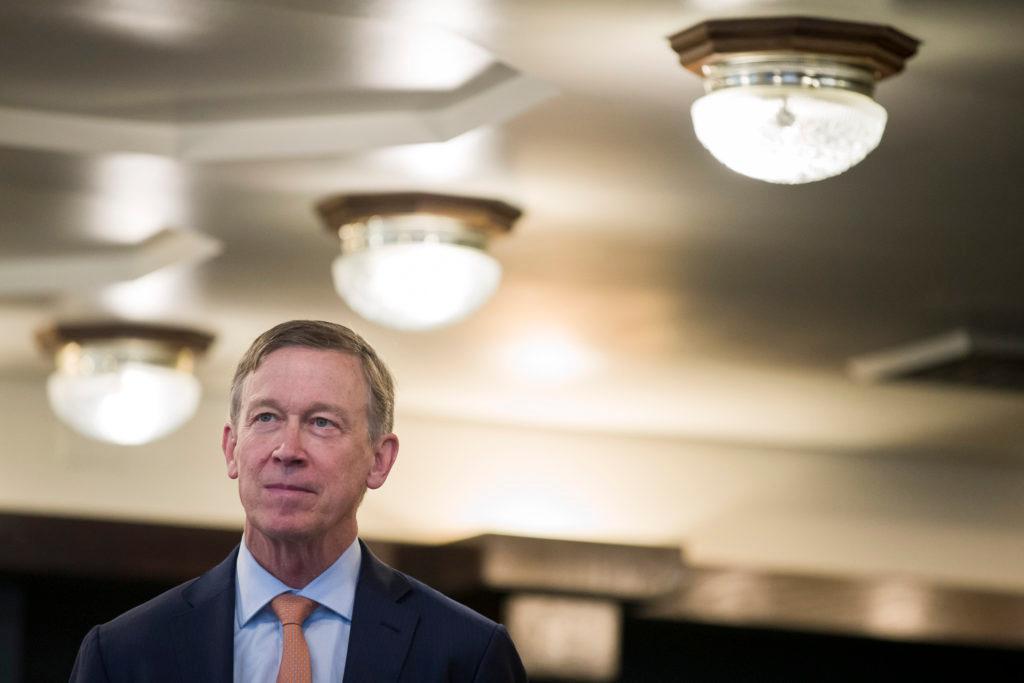
For his part, Hickenlooper now describes climate change as “the defining challenge of our time,” one that “poses the greatest threat to humanity that in the history of the world.”
In his recently released climate plan, Hickenlooper called for net-zero greenhouse gas emissions by 2050, in line with the goals laid out by UN scientists in the 2019 Intergovernmental Panel on Climate Change report. He also said the U.S. should implement a “carbon dividend plan,” which amounts to a tax on carbon polluters with the proceeds distributed to the American public to offset any increased energy costs.
Finally, Hickenlooper wants the U.S. to rejoin the Paris Climate Accord.
Still, the former governor has criticized parts of the Green New Deal, which aims to tackle climate change and economic inequality simultaneously. In an op-ed during his presidential campaign, he wrote that the resolution proposed by Rep. Alexandria Ocasio-Cortez of New York “sets unachievable goals.” He warned the plan’s federal jobs guarantee would overburden the federal government and alienate the private sector.
In an interview with CPR News, Hickenlooper remained skeptical of the policy outline, which strikes him as unnecessarily radical at a moment that demands consensus.
“When you look back at history, when we’ve had successful transitions, they usually start with being pragmatic,” he said. “Not gigantic strides, but progress.”
For Challengers, Pragmatism Is Naïve
With the exit of more centrist candidates from the race, former state House Speaker Andrew Romanoff has emerged as Hickenlooper’s lead rival for the Democratic nomination. He doesn’t have much patience for the governor’s brand of pragmatism, saying it fails to account for the dangers of climate change and steadfast Republican opposition to potential solutions.
“It makes me sad to say this, but folks like Cory Gardner and Mitch McConnel have no interest that I can detect in compromise on this front,” he said. “The truth is, we are facing an existential threat. It’s a crisis that demands bold leadership and we’re not going to get there by just taking little baby steps. It’s too late for that.”
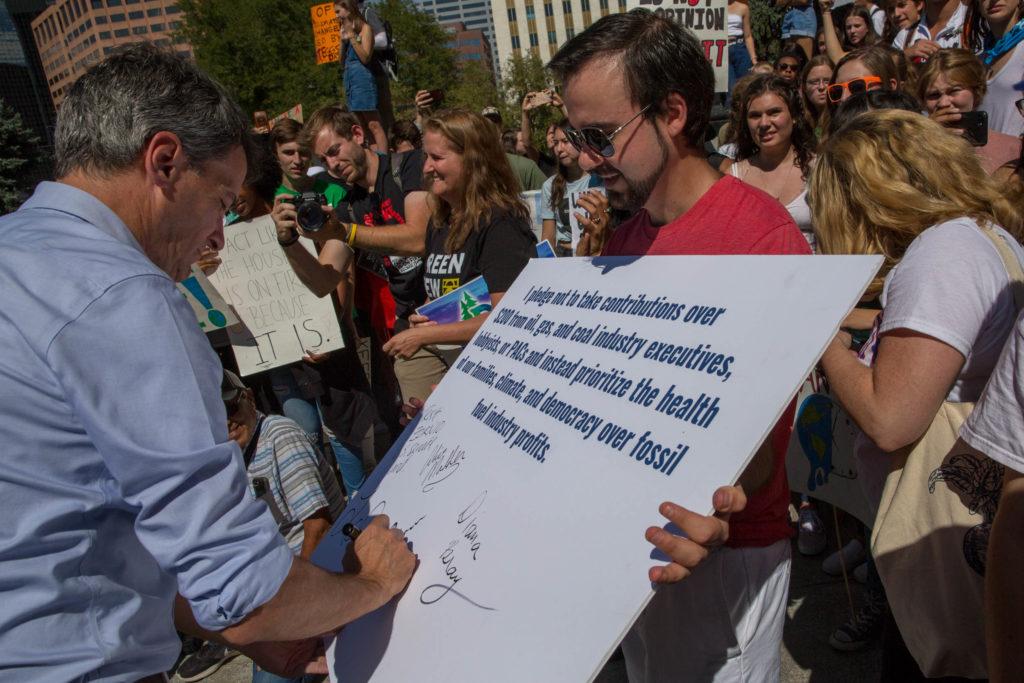
Romanoff embraced the Green New Deal during his Senate candidacy. He also supports a federal ban on hydraulic fracturing on private and public land, a position that puts him in line with Massachusetts Sen. Elizabeth Warren and Vermont Sen. Bernie Sanders.
Romanoff has drawn further contrast with Hickenlooper by repeatedly pointing out the former governor's refusal to sign the No Fossil Fuel Pledge. The commitment says candidates won’t knowingly take contributions over $200 from political action committees, executives or front groups for the fossil fuel industry. Aside from Cory Gardner, Hickenlooper is the only major-party candidate in the Senate race who hasn’t signed on.
“The truth is we need to end our reliance on fossil fuels,” Romanoff said. “And that means standing up to corporate contributors.”
Hickenlooper did sign the pledge as a presidential candidate but doubled back because it forbids donations from executives. While his campaign has promised not to take any corporate PAC money, Hickenlooper said refusing money from individuals came with a wide set of issues, like having to judge who counts as an executive rather than an employee. He also questioned why he would refuse money from employees of the fossil fuel industry, but take money from those who work at pharmaceutical companies and other sectors facing public scrutiny.
“It just becomes a quagmire of who ‘yes’ and who ‘no’,” he said.
Climate Versus Electability
For some climate groups, Hickenlooper’s domination of the Democratic primary field has not come as good news.
“A tiger doesn’t change its stripes — and neither does a Hickenlooper,” said Joe Salazar, a former state representative who leads Colorado Rising, a nonprofit dedicated to fighting oil and gas development. “There’s no way in the world I’m gonna believe this man is some sort of climate warrior.”

The Sunrise Movement, an increasingly influential youth climate group, is pushing for Colorado candidates to sign the No Fossil Fuel pledge. The group announced it would be endorsing another candidate as soon as Hickenlooper entered the Senate race.
“He’s made it very clear he’s not prioritizing people,” said Sunrise coordinator Michele Weindling “Instead, he’s in the back pocket of fossil fuel CEOs.”
It’s less clear how much those politics matter to the voters who will eventually decide the Democratic Senate primary.
At a recent art walk in Downtown Denver, registered nurse Patti Swope said she wasn’t sure she could support Hickenlooper unless he took a tougher line on environmental issues. Her husband, Tim Swope, wants a candidate who’s more progressive than Hickenlooper on a range of topics including climate change.
That’s when their friend Cris Jones broke into the conversation. The City of Boulder employee said he’s also concerned about the effects of climate change, but worries more about Democrats taking back the U.S. Senate.
“You can take a hardline perspective,” Jones said. “But if that means someone like Cory Gardner gets into office, that’s an even bigger loss. So if we’re going to be one issue voters, we might find ourselves in an even worse spot than we are today.”

